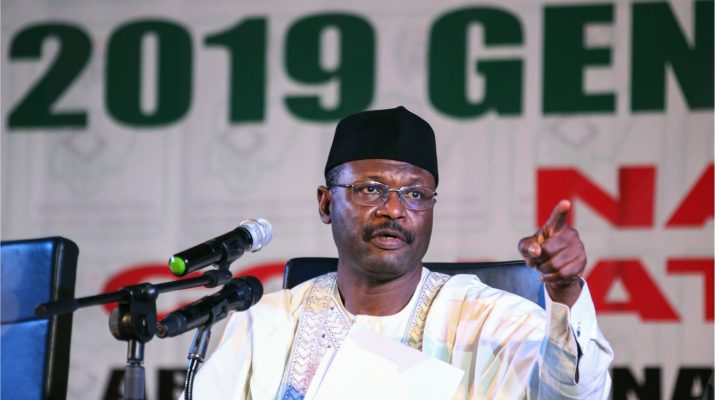The only way to achieve a credible election in 2027 devoid of the shenanigans that took place in 2023, is for Nigerians to rise up to the call for the compulsory deployment of the Bimodal Voter Accreditation System (BVAS) and the INEC Result Viewing Portal (IReV), simultaneously, by the Independent National Electoral Commission (INEC).
Nigeria’s democracy has come of age, and the one and only way to consolidate it is to evolve electoral reforms that can ensure a free, fair and credible elections. The BVAS and IReV are only a starting point.
The two technological innovations could work perfectly if the ever dubious and desperate Nigerian politicians will allow it. And, also, the only way to allow for the compulsory deployment of these electronic devices is to amend the Electoral Act to leave the INEC no more option than to deploy them during elections.
The 2023 general election was heading in the direction of almost being the best with the application of the two electronic gadgets until the Mahmud Yakubu INEC dubiously altered their deployment, preferring to use the manual collection of results to achieve a heist that has foisted insensitive rulers on the nation.
If the 2027 general election results will be uploaded real time from the polling units onto the IReV, without tampering with the flow, most of the selfish politicians bragging about with ill-gotten wealth cannot win even in their polling units.
It also may not be contestable that, should Nigeria witness a credible election come 2027, even President Bola Ahmed Tinubu, despite the flaunting of humongous projects being executed in the country by the All Progressives Congress (APC)-led government, may not be voted in for a second term.
The hurdle now lies in the National Assembly and President Tinubu’s willingness to amend the Electoral Act, and also sign the amendment into law respectively. Hence focus now should be on the National Assembly. The opposition parties’ and the Civil Society Organizations (CSOs) must rally themselves to persuade the lawmakers to tinker with the Electoral Act in order to make the use of electronic devices compulsory for INEC rather than the optional provision in the Act.
It’ll also be a herculean task to persuade Tinubu to assent to the amendment because he knows that a credible election in 2027 will be the greatest challenge to his second term ambition.
But democracy is for the people, and no one person or a group or persons should lord it over the state for their selfish interest. Hence, the people must rise up to insist on the amendment and Tinubu’s assent. Otherwise, with the present structure of the INEC and security forces, which appear to be an appendage of the presidency and its willing tools, no presidential candidate of any party can defeat Tinubu in 2027 because INEC and the security forces will repeat the charade of 2023.
In our usual can-do-spirit and never-say-die fashion, other stories that reflect the country’s socio-economic, business and other realities beckon the reader in this loaded edition. Enjoy the ride!



